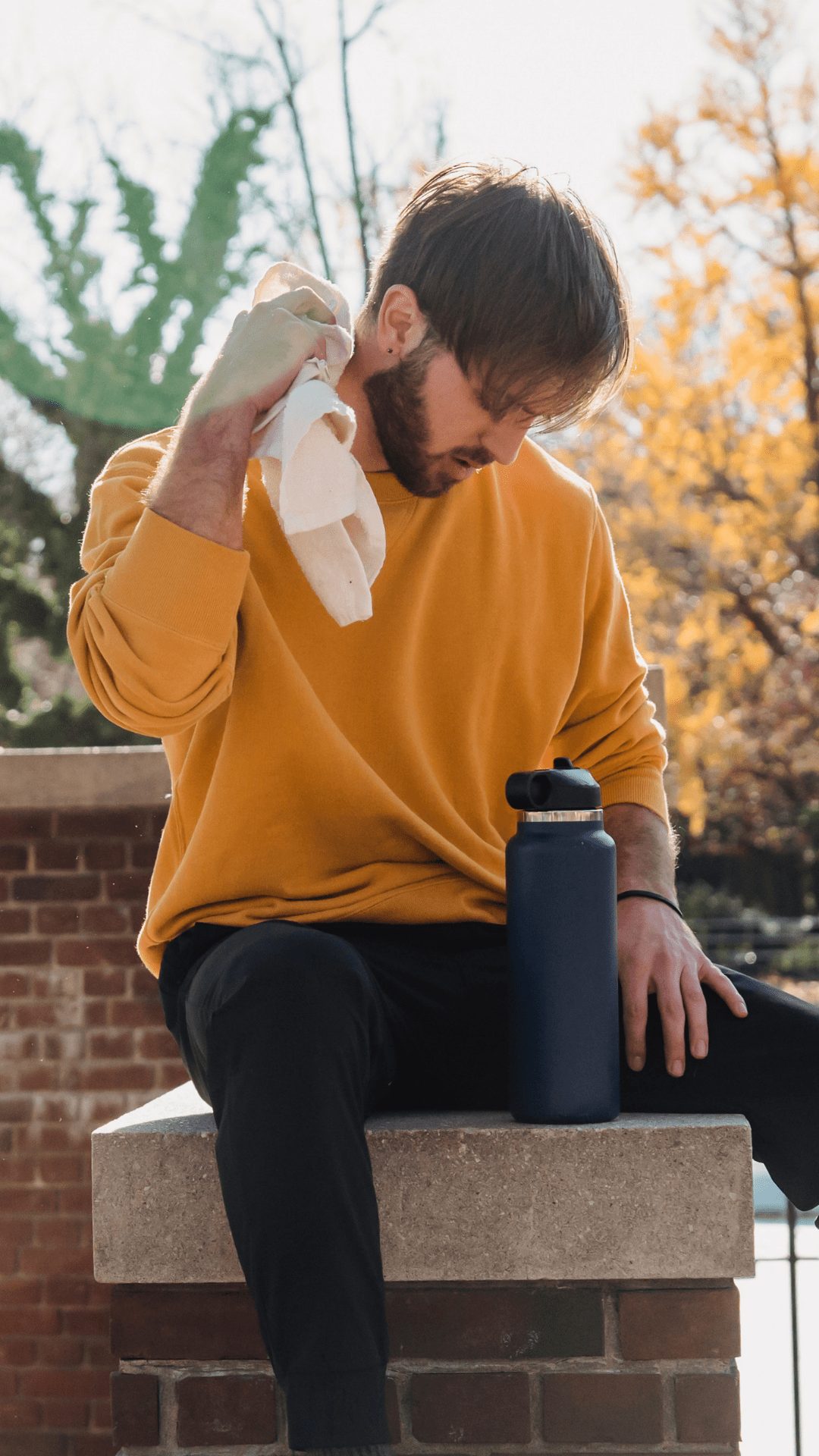
MHR Clinic consultants are often asked, ‘Is it better to have a hair transplant in winter or summer?’ Here our senior consultant Dean Watson explains which season is better for a hair transplant, for different reasons, and reveals how cold or warm weather can affect a hair transplant.
The onset of hair loss prompts many men to consider having a hair transplant.
Once they have decided to restore a thick head of hair with FUE surgery, their thoughts then typically turn to the finer detail of where and when they’re best having their hair transplant procedure.
Those who choose MHR Clinic often ask our consultants questions such as, ‘When is the best time to have a hair transplant?’ and ‘Which season is best for a hair transplant?’ or even ‘Does cold or warm weather affect a hair transplant?’
The truth is that there’s no definitive ‘best’ time to have a hair transplant. FUE surgery is performed consistently throughout the year at MHR Clinic.
Really, the most obvious time to have a hair transplant is when it suits the client’s lifestyle, schedule and their feelings about hair loss.
For some, it has to happen as soon as possible. Others want to be a little more strategic about when they have their hair surgery.
So, we advise them that there are different benefits and drawbacks to having a hair transplant in winter or summer.
In this article, we look at everything to consider when deciding which season is best for a hair transplant.


Is it best to have a hair transplant in winter?
While there are advantages and disadvantages to having a FUE procedure at any point of the year, winter offers several distinct benefits as the best time to have a hair transplant.
You’re less likely to sweat in winter
The colder weather in winter greatly reduces the chance of sweat infecting newly transplanted follicles.
We advise clients to abstain from strenuous exercise, manual labour or any other activity that could cause sweating within two weeks of having FUE surgery.
Summer heat can cause sweating without any strenuous exercise so, for the same reason and the health of your newly transplanted follicles, it can be advisable to book your hair transplant date in cooler months.
There’s less opportunity to sunbathe and swim
When summer arrives the first two activities most of us start thinking about are sunbathing and swimming.
Neither sunbathing nor swimming are any good for a recent hair transplant. Bright UV light is capable of damaging newly implanted follicles. Sunburn can kill them off, so no hair grows.
Swimming in chlorine water can also do the same so booking a hair transplant in winter helps to remove any temptation to sunbathe and swim within two weeks of a hair transplant.
Wearing a hat is normal in winter
Many of our clients prefer to hide the fact they’ve had a hair transplant, or at least avoid comments and discussion about their decision.
While wearing a woolly hat is unadvisable for several immediately after having a hair transplant, it can then be a handy disguise for hiding obvious signs of a having had a recent procedure.
Winter offers the opportunity to cut back on people’s comments and glances that make you feel self-conscious, because wearing a hat is normal in the colder months.
Is it best to have a hair transplant in summer?
The pros and cons of having a hair transplant in different seasons are there to be considered, and summer offers its own advantages for booking a hair transplant.
Summer holidays offer a better window
The Christmas holiday season can be a frenetic period in which festive commitments take priority.
The distraction of work and social celebrations, and preparing for a big family day, make it an altogether inconvenient time to have a hair transplant. And hair restoration clinics close up for Christmas too.
Summer, on the other hand, offers a good opportunity to take time off work and get the procedure done with calmer days making recovery from a hair transplant easier.
Short hair can be cold on the head in winter
Closely cropped hair isn’t always a popular choice in winter, especially in the UK, as colder and sometimes freezing weather can bring a bitter chill to exposed skin.
A hair transplant requires clients to have their heads shaved to a no.1 grade clipper cut and, in the depths of winter on the wrong day with the wind blowing the wrong direction, it will cause an icy chill on the scalp.
Alternatively, the warmer weeks of summer allow for shorter haircuts and a more comfortable period following a FUE procedure.
Skin and hair is healthier in summer
While exposure to bright UV rays and risking sunburn is a definite ‘no’ after a hair transplant, a little gentle sunlight is actually a good thing for the health of hair and skin.
Hair grows faster and sheds less during summer months, and skin cells regenerate at a faster rate when exposed to more natural vitamin D.
While it’s important to avoid sun exposure for a fortnight after a FUE procedure, thereafter greater amounts of sunlight, than available in winter, will help newly transplanted follicles get off to a good start in their new environment.
Whether a client feels their hair transplant is better undertaken in winter or summer, the key to a successful hair transplant lies in choosing the right clinic with an experienced and talented surgeon.
Thereafter, following the professional advice given by that clinic, on how to care for a hair transplant after surgery, also determines the outcome from hair transplant surgery.
MHR Clinic gives its clients clear written guidance about how best to heal a hair transplant after surgery and its consultants are on hand at all times to offer further help when needed.
If you would like more information about hair transplants, please contact MHR Clinic on 01565 745 344 or reach out to us through the contact page on this website.
